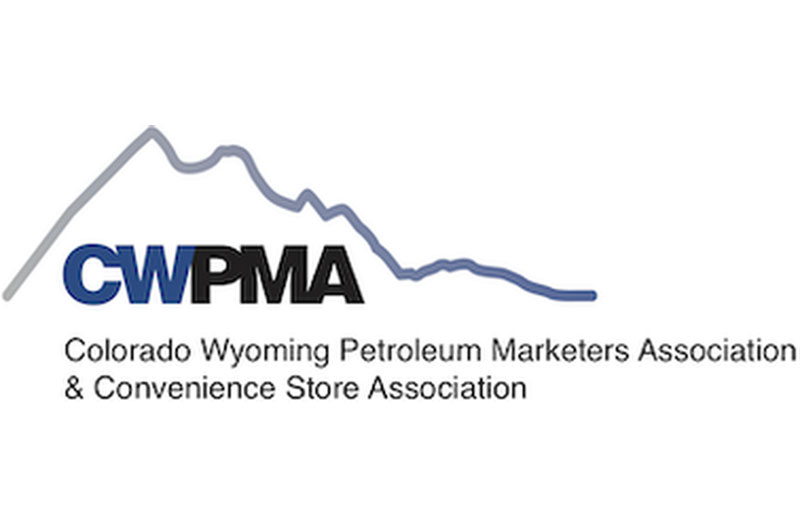Wyoming is the 10th largest state in the U.S. in total area but is the least populated, with about 581,000 residents.
It does not impose an income tax, with local governments relying heavily on property tax collections. More than 60 percent of those revenues come from mineral production. The majority of property taxes are directed to Wyoming’s public schools.
According to the Wyoming Department of Administration & Information, $140 million of investment income was distributed to the state general fund in the second quarter of the year, including income from the Permanent Wyoming Mineral Trust Fund and state agency pooled income accounts.

According to Grier Bailey, executive director of the Colorado-Wyoming Petroleum Marketers Association & Convenience Store Association, Wyoming’s reserves are so great it could operate almost an entire year without taking in any additional revenue.
“They work really hard on keeping the regulatory environment very tax friendly, especially for Wyoming businesses and citizens … Wyoming’s a really, really good place to do business,” he said.
The association recently changed its membership bylaws to include small grocers.
“We’ve been trying to help cover for all the small grocers that were part of the Rocky Mountain Food Industry for a while now,” said Bailey, adding that its board of directors created a new membership class for them.
He said the delineation between convenience stores, truck stops and small grocers is being “blurred” as companies consolidate and get bigger. Bailey said nearly every one of the association’s board members in Wyoming accept SNAP/EBT and WIC.
While not many small grocers in the state have joined yet, he said the association, as a service organization, will continue to “make sure that they’re OK.”
While labor remains a concern for many businesses across the country, Bailey said Wyoming’s small population also presents a challenge. State government is looking at some initiatives concerning vocational trades.
“How do you get more delivery drivers? How do you get more people with the proper certification, and how do we cross train people? I think Wyoming is really on the leading edge of a lot of that,” he said.
The association has been working with its regulatory partners on the adoption of state and federal regulations. With a strong tradition of local home rule, Bailey said there are variances between jurisdictions.
“We’re trying to get a regulatory compliance bulletin out about that. What do you need to know if you’re operating in Natrona County versus Laramie County? The government employees in Wyoming are always so responsive and have been really helpful with that.”
He said the association is trying to take a “balanced, broad approach” to these concerns, including EV charging stations. Most towns in Wyoming are about an hour apart from each other, he said, noting they follow the old rail lines.
“How do you make sure we’re not mandating or dictating anything in Wyoming? But we want to make sure that the state and the economy and businesses are responsive to all customers, including those that have an interest in electric vehicles. So we’ve been working on some things relative to how EV charging stations are placed and what kind of regulation is around them,” he said.
One question is, how do those vehicles help maintain the roads? While Wyoming has the same area as Colorado but a much smaller population, Bailey said funding is important. The state has one of the biggest truck traffic routes in the country – Interstate 80.
“For the businesses, including small grocers or small convenience stores along major freight corridors, we’re trying to make sure that we’re looking toward the next 10 years. I think that Wyoming is doing a really good job of it.”
One of the issues of concern to the association is credit card fees.
“The more I look into that issue, the more I’m beginning to realize that the financial payments industry makes everything super easy and convenient, but they do raise costs on people,” he said. “They raise costs on cash customers, they raise costs for people who are on assistance programs, whether it’s state or federal benefits.
“That’s a federal issue, and I know there are a lot of groups working on that sort of thing, but it’s actually an issue that crosses political ideology, especially when you realize that credit cards are charged on tax as well. You’re actually turning the collection of tax into a profit center, which is strange that will continue in a pretty conservative state like Wyoming.”
Bailey said the association will continue to work on tobacco issues, as preventing youth access to these products is important.
“The most recent Center for Tobacco Products Youth Use Survey came out and, while youth use is decreasing across all categories, we want to make sure that trend continues in states like Wyoming,” he said. “I think that it’s important that the industry and the retailers lead when it comes to preventing youth access, and the association is super supportive of measures to do that.
“That includes retail c-stores and small grocery stores and places where you can buy these products legally. We’ve got to make sure that we’re the best in the nation when it comes to not providing those products illegally to youth.”
According to Bailey, a well-regulated environment is a good thing in that it protects the retail community along with the wholesalers and manufacturers but “most importantly it protects our communities.”
“Nobody wants to impede new products coming to market, but when those products are in an age-restricted space, it’s really important to be leading on the responsible sale of those,” he said.
Read more association news from The Shelby Report.

